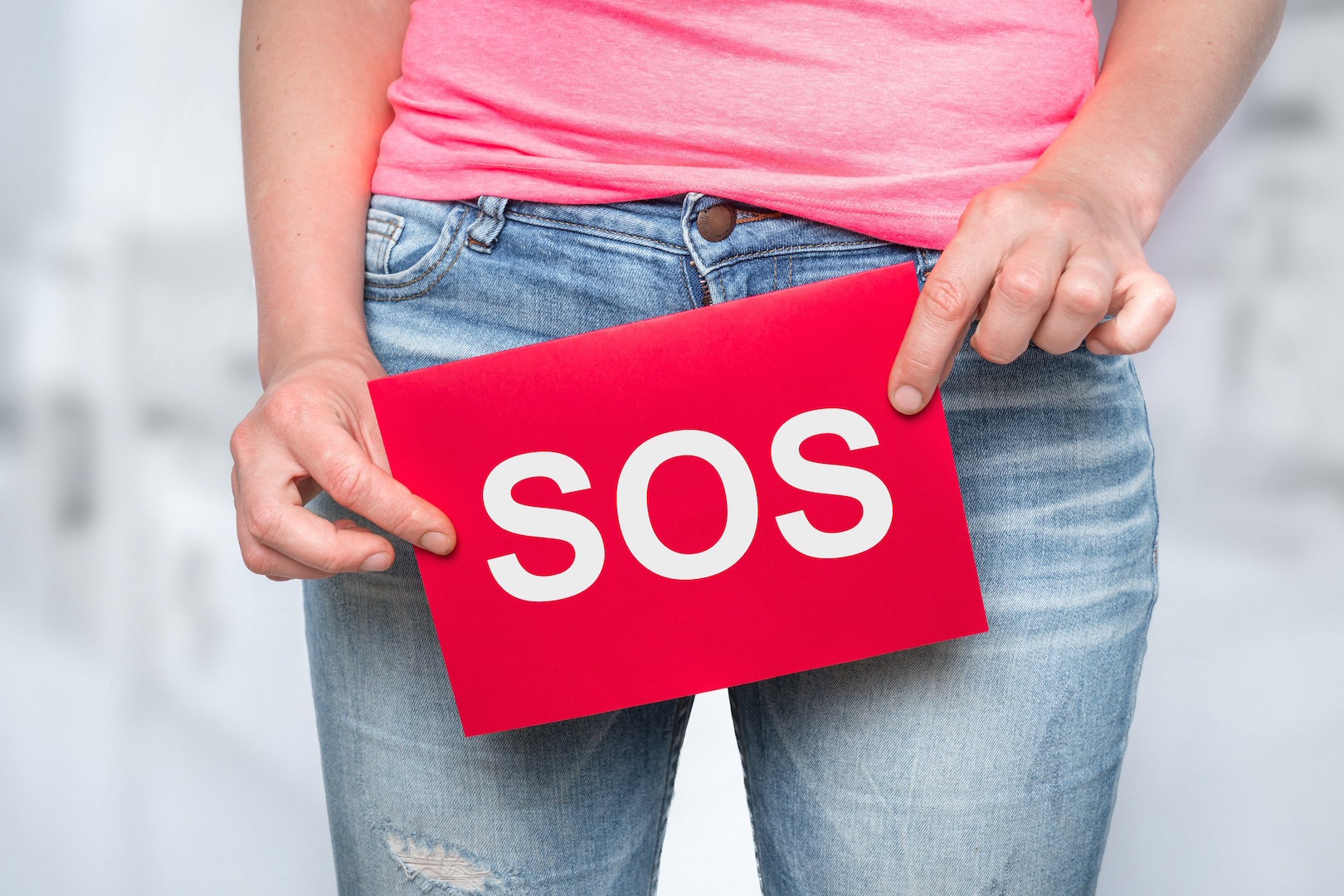At KCUC Urology and Oncology, we see many patients with female urinary incontinence issues. We understand the intrusive nature incontinence issues can have in your life. The potential for accidents and embarrassment affects many everyday choices including work, social, and sexual decisions. If urinary incontinence is keeping you from living your fullest life, come see us. We have a variety of treatments available to help women overcome this problem and get back to their normal activities. Read on to learn more about the causes, symptoms, and available treatments for female urinary incontinence.
What Are the Different Types of Urinary Incontinence in Women?
Incontinence affects twice as many women as men. This may be due to the extra stresses put on the female body during pregnancy, childbirth, and menopause. There are mainly two types of urinary incontinence that affect women – stress incontinence and urge incontinence.
Urge Incontinence
Also referred to as Overactive Bladder or OAB, urge incontinence is leakage that is accompanied by a strong and sudden urge to urinate. Because of the suddenness, patients may not have time to reach the bathroom before urinating.
Stress Incontinence
Stress incontinence happens when muscles that control urination are accidentally used such as when a patient sneezes, coughs, laughs, lifts something heavy, or exercises. It is most common among middle-aged and older women.
Symptoms of Urinary Incontinence
Each type of incontinence has different symptoms. Here are the most common things to look for:
Urge Incontinence Symptoms
- Sudden, strong urge to urinate
- Inability to get to the bathroom in time
- Need to urinate frequently, especially at night
- Urge to urinate when you hear water running
Symptoms of Stress Incontinence
- Urine leaks when lifting heavy objects, exercising, coughing, sneezing, etc.
- Symptoms worsen when your bladder is full or you are more active
What Causes Female Urinary Incontinence?
Because there are different types of urinary incontinence, it’s important to get the correct diagnosis. Causes can vary depending on the type of incontinence you are experiencing. Some types of incontinence are temporary and easily corrected. Persistent incontinence can be caused by underlying medical conditions or physical problems. Here are some common causes of urinary incontinence.
Causes of Temporary Incontinence
- Urinary tract infections (UTIs) are a common cause of incontinence.
- Diet can also aggravate the bladder – coffee, tea, carbonated drinks, highly acidic fruit juices, and alcohol can cause problems as well as eating too much chocolate, spicy or acidic foods, sugar, or artificial sweeteners.
- Bowel issues like IBS (irritable bowel syndrome) and chronic constipation can create pressure in the colon and cause the nerves in the rectum to be overactive and stimulate surrounding nerves including those that control bladder muscles.
- Certain medications can increase urine production and stimulate the bladder. Read the labels on all medication, especially heart and blood pressure medicine, large doses of vitamin C, sedatives, and of course, muscle relaxants.
Causes of Persistent Incontinence
- Hormonal changes and weight gain due to pregnancy can lead to stress incontinence as well as childbirth. Vaginal delivery can weaken the muscles needed for bladder control. Some women experience damaged bladder nerves and supportive tissue, leading to a prolapsed pelvic floor. With prolapse, the bladder, uterus, rectum, or small intestine can get pushed down from the usual position and protrude into the vagina. These protrusions may cause incontinence.
- Aging also leads to weak bladder muscles. To make matters worse, involuntary bladder contractions become more frequent as you get older.
- After menopause, a drop in estrogen levels can lead to deterioration of the urethra and the lining of the bladder which can aggravate incontinence symptoms.
- Nervous system damage due to Multiple Sclerosis, Parkinson’s disease, Alzheimer’s disease, stroke, diabetes, and other conditions.
How To Treat Female Urinary Incontinence
Once you have been diagnosed, we have several treatment options for urinary incontinence. Urge incontinence usually responds well to medicine. Treatment usually begins with noninvasive therapy such as behavioral changes, lifestyle changes, or medication. These may include:
- Fluid and diet management
- Bladder retraining
- Bowel management
- Pelvic floor exercises
- Biofeedback
- Special absorbent pads and underwear
- Medicine to relax your bladder muscles or make less urine at night
We can also implant an electrical device – in an outpatient procedure, we implant a small device that delivers a mild electrical signal to the pelvic nerves to calm the bladder.
Surgery and Implanted Devices
We have several types of treatment for stress incontinence. Because female stress incontinence problems usually stem from an abnormality in the bladder’s support system (typically due to age or pregnancy), sling surgeries that provide artificial support for the bladder are very successful. We also have several other options to support the bladder:
- Sling Surgery – an outpatient procedure where a small strip of mesh is implanted under the bladder to support the bladder neck and urethra.
- Bulking Agent – for certain types of stress incontinence a thick substance can be injected into the area around the bladder to support it.
- Artificial Urinary Sphincter – this implanted device replaces the natural muscle that controls the urine flow at the outlet of the bladder.
The good news is incontinence is a common problem with a very good success rate for relief. It is important to seek medical advice to rule out the possibility of diabetes or an underlying neurological disease.

